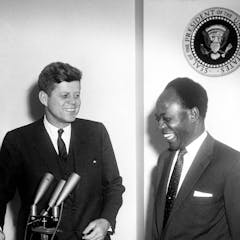
Articles on Linguistics
Displaying 141 - 160 of 359 articles

New linguistic research suggest early Germanic language and culture was strongly influenced by the Mediterranean superpower Carthage more than 2,000 years ago.

Because sarcasm is often difficult to discern and improperly used, it can operate as a linguistic mulligan. But deploy the excuse too much, and you might raise some eyebrows.

Worried you won’t be understood while wearing a mask? Don’t be. We studied how people sound while talking through fabric and the results are encouraging.

Those with a diagnosis of schizophrenia may be more likely to interpret metaphorical thoughts literally.

Generic names can take on a linguistic life of their own, becoming powerful forms of social commentary.

Dickens had some clever little narrative tricks, which become clear when his work is analysed as a single data set.

The Scripps National Spelling Bee highlights the richness of the English lexicon by picking some tough entries with foreign roots.

The etymology of an epidemic.

One anthropologist found 1,072 similar words for ‘mom’ and ‘dad’ in the world’s languages. It turns out a mix of biology, culture and encouragement from parents explains this phenomenon.

Second-language learners from different age groups seem to have equal chances of becoming highly proficient speakers as long as they are placed in a supportive environment.

Have you been pulled up by a “grammar Nazi”? Now you can correct them back.

It’s all about context.

On International Mother Language Day, Canadians can celebrate multilingual heritage by recognizing flexible uses of languages.

Accents differ depending on where we’re from, even in the same country.

Irony is a slippery concept. Sometimes it’s used in speech, other times it’s used to describe a situation – oh, and it can also characterize an attitude. Is its versatility its downfall?

African American Vernacular English is part and parcel of Black identity. Its distinctive linguistic features are — wrongly — denigrated.

The unpleasant ‘Happy Brexit Day’ poster misses the fact that the vast majority of people in the UK recognise the benefits of multilingualism.

People still find ways to express old ways of speaking in a new language, so that language does not fundamentally alter their cultural identity.

Compared to other politicians who tend to be indirect and evasive, Nkrumah was direct, explicit and assertive.

Pronouns rarely, if ever, change. Then along came the gender nonbinary ‘they,’ which was just anointed ‘word of the decade.’





